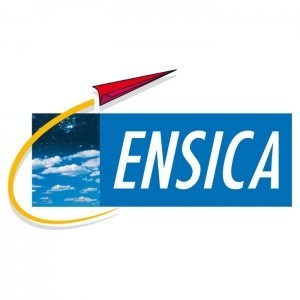Photos of university / #officialuom
The Master's degree in Tissue Engineering for Regenerative Medicine at The University of Manchester is a cutting-edge postgraduate program designed to equip students with comprehensive knowledge and practical skills in the rapidly evolving field of regenerative medicine. This program aims to prepare graduates to contribute to innovative healthcare solutions by developing advanced tissue engineering techniques, biomaterials, and regenerative therapies. The curriculum covers a wide range of topics, including cellular biology, biomaterials science, stem cell technology, and clinical applications of tissue engineering. Students will engage in laboratory-based research projects, gaining hands-on experience in designing and evaluating tissue constructs, scaffold fabrication, and bioreactor systems. The programme emphasizes interdisciplinary learning, combining principles of biology, engineering, and medicine to foster innovative problem-solving skills. Throughout the course, students are encouraged to participate in collaborative projects and internships, facilitating real-world applications of their knowledge and expanding their professional networks. The University of Manchester provides state-of-the-art laboratories and research facilities, supporting students in conducting pioneering research alongside leading experts in the field. Graduates of this program are well-prepared for careers in academia, industry, and clinical settings, contributing to the development of regenerative therapies for a variety of medical conditions, including joint, skin, and organ repair. Additionally, the program offers opportunities for further research at the doctoral level, positioning students at the forefront of scientific advancement in tissue engineering. With a focus on innovation, excellence, and practical training, the MSc in Tissue Engineering for Regenerative Medicine at The University of Manchester provides a unique pathway for students passionate about transforming healthcare through tissue engineering technologies.
The MSc in Tissue Engineering for Regenerative Medicine at The University of Manchester offers a comprehensive and interdisciplinary curriculum designed to equip students with the essential knowledge and practical skills required to advance innovations in regenerative medicine. This programme explores the fundamental principles of tissue engineering, including cell biology, biomaterials, and bioprinting technologies, alongside the latest developments in regenerative therapies. Throughout the course, students engage in advanced lectures, laboratory experiments, and project work focused on the design and development of engineered tissues and organs to replace damaged or diseased biological structures. The curriculum integrates biomedical sciences, engineering principles, and clinical applications to foster a deep understanding of how to translate lab research into real-world medical solutions. Students will study topics such as stem cell biology, scaffold fabrication, bioreactor design, and biomanufacturing, gaining the interdisciplinary expertise needed to innovate in regenerative medicine. The programme also emphasizes practical experience through lab sessions and industry collaborations, allowing students to develop hands-on skills in tissue culturing, scaffold manufacturing, and bioprinting techniques. Alongside technical training, the programme offers modules on research methodology, ethics, and regulations in biomedical engineering, preparing students for careers in academia, industry, or healthcare innovation. Faculty members are leaders in the field, providing mentorship and guidance on cutting-edge research projects. Graduates of the MSc in Tissue Engineering for Regenerative Medicine are well-equipped to contribute to the development of new therapies, work in biomedical companies, or pursue further research at the doctoral level. With access to state-of-the-art laboratories and collaborations with industry partners, students gain a solid foundation in the technologies shaping the future of regenerative medicine and tissue engineering. The course aims to produce highly skilled professionals capable of driving innovation and improving patient outcomes through advanced regenerative therapies.
a minimum of 60 credits at level 4 or above, including at least 40 credits at level 5 or above, and 20 credits at level 6 or above; prior qualifications to demonstrate academic ability, such as a relevant honours degree in a related field (e.g., biomedical sciences, biomedical engineering, or materials science), are typically required; applicants may also need to provide evidence of relevant work experience or other qualifications acceptable to the university; proficiency in English language (e.g., IELTS overall score of 6.5 with a minimum of 6.0 in each component) if applicable; a personal statement demonstrating motivation and understanding of tissue engineering and regenerative medicine is usually required; relevant work or research experience in tissue engineering, regenerative medicine, biomaterials, or related areas can strengthen application; english language proficiency evidence if applicable; no specific prerequisite courses are mandated, but foundational knowledge in cell biology, tissue biology, biomaterials, and engineering principles is considered advantageous; interview or assessment tasks may be part of the selection process; scholarship or funding applications should meet deadline and eligibility criteria as specified by the university; applicants with non-standard qualifications are encouraged to contact admissions for recognition of prior learning; students must meet the university’s general entry requirements for postgraduate taught programmes; applicants should prepare a detailed CV highlighting relevant academic and practical experience; all international applicants should ensure their qualifications are recognized by the university's recognition procedures; for more specific requirements, refer to the official program webpage or contact the admissions office directly.
There is no specific information available regarding the financing studies for the Tissue Engineering for Regenerative Medicine program at The University of Manchester. Typically, funding options for postgraduate programmes at the university include a combination of scholarships, bursaries, student loans, and employer sponsorships. International students are often eligible to apply for various external funding sources, as well as university-specific scholarships that support outstanding candidates. The University of Manchester also participates in national funding schemes such as the UK Research and Innovation (UKRI) grants, which may cover part of the research costs or tuition fees for eligible students. Students are encouraged to explore the university’s scholarships and funding pages to identify suitable opportunities. Furthermore, certain programs offer teaching or research assistant roles, providing part-time income to help offset living and study expenses. Prospective students should also consider external funding bodies, professional associations, and industry partnerships that may provide financial support for studies in regenerative medicine and tissue engineering fields. It is advisable to contact the university’s admissions or financial aid offices directly for tailored advice and to access the most current information on available funding options for this specific programme.
The MSc in Tissue Engineering for Regenerative Medicine at The University of Manchester is a specialized postgraduate programme designed to equip students with the knowledge and skills necessary to contribute to the rapidly evolving field of regenerative medicine. This programme integrates principles from biomedical engineering, cell biology, materials science, and clinical applications to prepare graduates for careers in academia, industry, or healthcare settings. Students will explore the fundamental concepts of tissue engineering, including scaffold design, biocompatible materials, stem cell biology, and bioreactor technologies. The curriculum emphasizes both theoretical understanding and practical skills, with laboratory sessions, group projects, and opportunities for research.
The programme aims to address the global challenge of organ and tissue failure by developing innovative strategies for tissue regeneration. From the outset, students engage with current research and emerging technologies, gaining insight into how engineered tissues can restore function and improve quality of life for patients. They will learn about the ethical, regulatory, and commercial aspects of regenerative medicine, preparing them for potential translational pathways from laboratory research to clinical implementation. In addition to core modules, students may undertake a research project, often in collaboration with leading academics or industry partners, providing hands-on experience in cutting-edge tissue engineering techniques.
The teaching team comprises expert faculty members with extensive experience in biomedical engineering and regenerative medicine. The university's state-of-the-art facilities, including dedicated laboratories for tissue culture, biomaterials testing, and imaging, provide an excellent environment for experiential learning. The programme typically includes lectures, seminars, workshops, and independent study, fostering a dynamic and stimulating academic atmosphere. Graduates of this programme will be well-positioned to pursue further research, enter the biomedical industry, or work within healthcare institutions specializing in regenerative therapies. The University of Manchester’s strong links with industry and research organizations ensure that students gain exposure to real-world challenges and opportunities within the field of tissue engineering.



